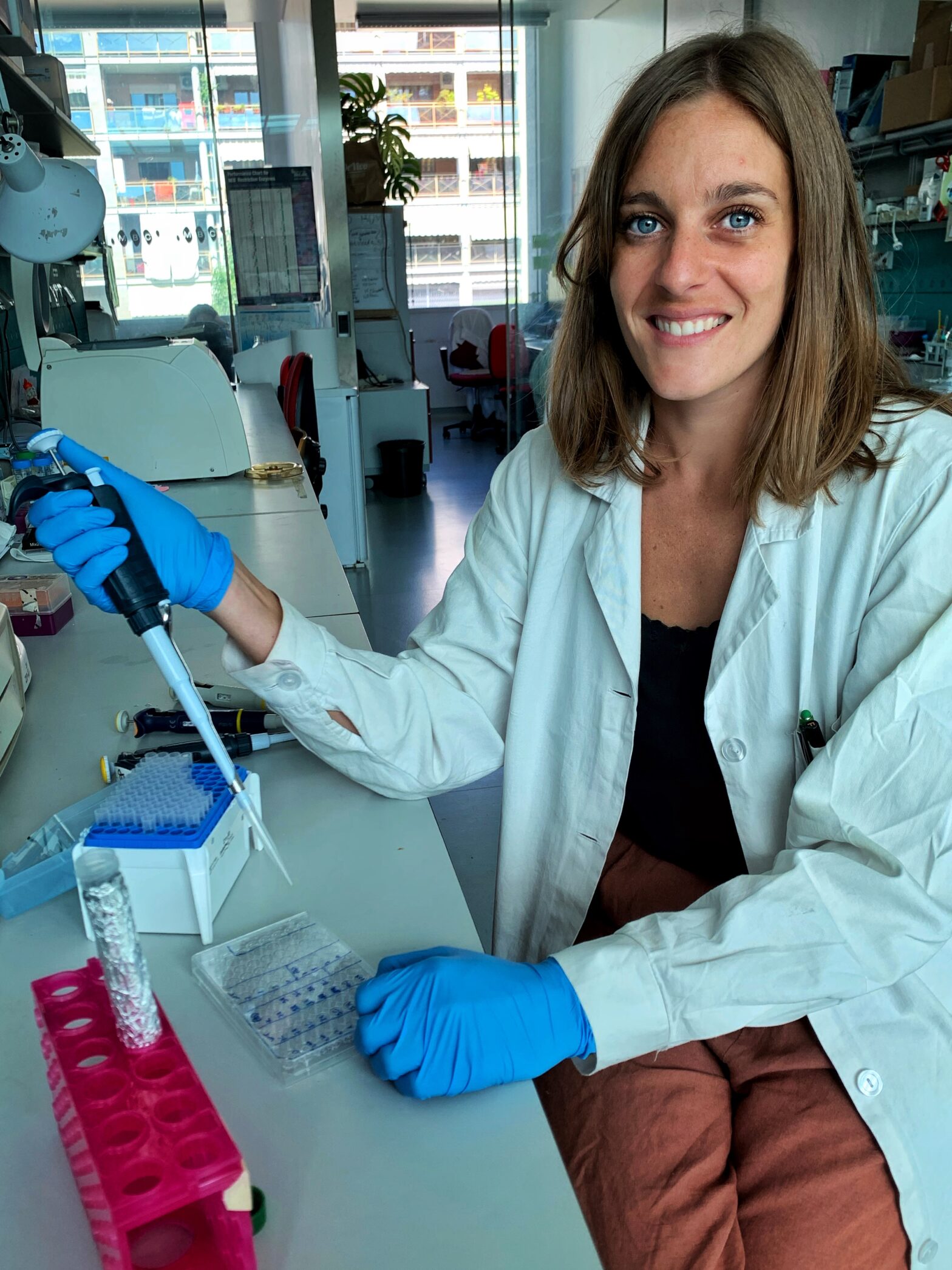WHAT IS YOUR BACKGROUND?
Early at school, biology was already my favorite subject and It’s very naturally that I choose to deepen my understanding of the living world and more particularly of human biology by studying Cell and Molecular biology at the University of Lille in France where I am from. There I had my first research experience in a neuroendocrinology lab focusing on how peripheric signals such as hormones are integrated in the hypothalamus to regulate essential processes such as systemic energy metabolism or the reproductive function. I then choose to challenge myself and expand my horizons by moving abroad to do my PhD. So I joined the laboratory of Prof. Paolo Porporato at the university of Torino to study a very debilitating syndrome often associated with tumor progression called Cachexia. Cachexia manifests as a massive weight loss and in particular muscle loss and is responsible for at least 20% of all cancer related death. Mechanisms of cachexia are still mostly unknown, therefore my goal was to set-up in vitro and in vivo models in order to identify molecular mechanisms underlying the development of cancer cachexia. During my PhD I also got the opportunity to join the laboratory of Prof. Laure Bindels at the Catholic University of Louvain in Belgium for 3 months, where I got introduced to the role of the gut microbiota in cancer cachexia.
WHY DID YOU CHOOSE TO DO RESEARCH ON PANCREATIC CANCER?
Since the beginning of my PhD I have been focused on tumor cachexia, a severe syndrome characterized by the loss of muscle mass and strength. This condition is particularly present in pancreatic cancer, in which almost all patients develop this condition which, in addition to leading to strong weight loss, drastically worsens the quality of life and tolerance to therapies. I therefore decided to focus on identifying the molecules that lead the body to induce weight loss and muscle atrophy, to reduce the severity of this disease.
WHAT IS YOUR RESEARCH ABOUT?
Pancreatic cancer is a malignant tumor, the severity of this condition partially lies in the inability to counteract the loss of muscle mass. In the end, this problem causes a strong state of fragility in the patient, up to leading to the interruption of therapies. The purpose of my project is to study the metabolic alterations that affect the muscle during pancreatic cancer and cause its progressive atrophy: to this end, I am working on the development of new study models for the characterization of tumor-induced muscular atrophy by the pancreatic tumors and to the development of screening strategies in order to identify the factors involved in the process.
WHAT ARE THE RESERCH PERSPECTIVES AND THE IMPACT OF YOUR WORK?
With my work, I hope to identify the metabolic alterations that affect the muscle during the growth of pancreatic cancer. The ultimate goal of my research is to develop interventions aimed at limiting the cachexia affecting patients with pancreatic cancer.
WHY IS IT IMPORTANT TO BE PART OF THE IPCC?
In our research field, confrontation with other researchers is necessary. In particular, dealing with an aspect that does not directly analyze cancer cells, but the whole tumor-affected organism, it is necessary to interact with other researchers specifically focused on pancreatic cancer from another point of view. To this end, being part of the IPCC network is of great help to research.
WHEN YOU ARE NOT IN YOUR LAB WHAT DO YOU LIKE TO DO?
I like to spend time outdoor, whereas it is trekking, cycling or kayaking or simply explore new places.



